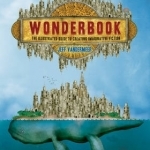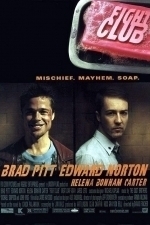
Jay Jeffers: Collected Cool: The Art of Bold, Stylish Interiors
Book
In his first book, acclaimed interior designer Jay Jeffers displays the sophisticated yet playful...

Stronger (2016)
Movie Watch
Stronger is the inspiring true story of Jeff Bauman, an ordinary man who captured the hearts of his...

White Hunter Black Heart (1990)
Movie Watch
For a film of “excitement, wit and intelligence” (Rex Reed, New York Observer), your hunt is...

Wonderbook: The Illustrated Guide to Creating Imaginative Fiction
Jeff VanderMeer and Jeremy Zerfoss
Book
Wonderbook will be the definitive guide to writing fantasy. This innovative book will take a...

Seven Brides for Seven Brothers (1954)
Movie
Well, bless my beautiful hide! Director Stanley Donen invests this rollicking musical with a hearty...
Dave Eggers recommended The Landlord (1970) in Movies (curated)
DaveySmithy (107 KP) rated Fight Club (1999) in Movies
Dec 3, 2024
The story is told through the eyes of the unnamed narrator (Norton), a white-collar worker trapped in a monotonous life. Crippled by insomnia and a desperate longing for purpose, his mundane existence takes a dramatic turn when he crosses paths with Tyler Durden (Pitt), a magnetic, anarchic soap maker. Together, they form the titular fight club—a raw, underground outlet for men to vent their frustrations by literally beating them out of each other. What begins as an unconventional form of therapy soon spirals into a chaotic and dangerous movement, leading the narrator down a path of self-destruction and shocking revelations.
Edward Norton delivers a career-best performance as the narrator, capturing the character’s descent into madness with unnerving precision. His dry wit and self-deprecating humor make him relatable, even as his actions become increasingly unhinged. But it’s Brad Pitt who truly steals the show as Tyler Durden. Charismatic, unpredictable, and dripping with swagger, Pitt embodies the fantasy of rebellion and freedom that so many viewers secretly crave. Together, the two actors create a mesmerizing dynamic, with Tyler representing everything the narrator wants to be—and fears he might become.
Helena Bonham Carter rounds out the core cast as Marla Singer, a nihilistic wildcard who both disrupts and grounds the narrator’s chaotic journey. Her chemistry with Norton is as compelling as it is unconventional, adding a layer of emotional complexity to an otherwise hyper-masculine narrative.
What sets Fight Club apart is its fearless critique of modern society. It skewers consumerism, masculinity, and the emptiness of the so-called “American Dream,” forcing viewers to confront uncomfortable truths about their own lives. Fincher’s direction is sharp and unrelenting, with the film’s gritty visual style perfectly complementing its nihilistic tone. The innovative use of CGI, fourth-wall-breaking moments, and hauntingly effective cinematography by Jeff Cronenweth keep the audience on edge, unsure of what to expect next.
Yet, Fight Club is not without flaws. Its provocative themes can feel overly blunt at times, and some viewers might find its violent and anarchistic undertones alienating. Additionally, while the infamous plot twist is masterfully executed, it risks overshadowing the film’s deeper messages upon rewatch.
The soundtrack, anchored by The Dust Brothers’ industrial score and the unforgettable use of The Pixies’ “Where Is My Mind?” in the climax, elevates the film to iconic status. These elements, combined with razor-sharp dialogue and endlessly quotable lines, solidify Fight Club as a masterpiece of late-90s cinema.
While it may not be for everyone, Fight Club is a bold, daring, and unforgettable experience that challenges societal norms and forces introspection. It’s an audacious 9/10 film—flawed but brilliant, much like the chaos it portrays.




